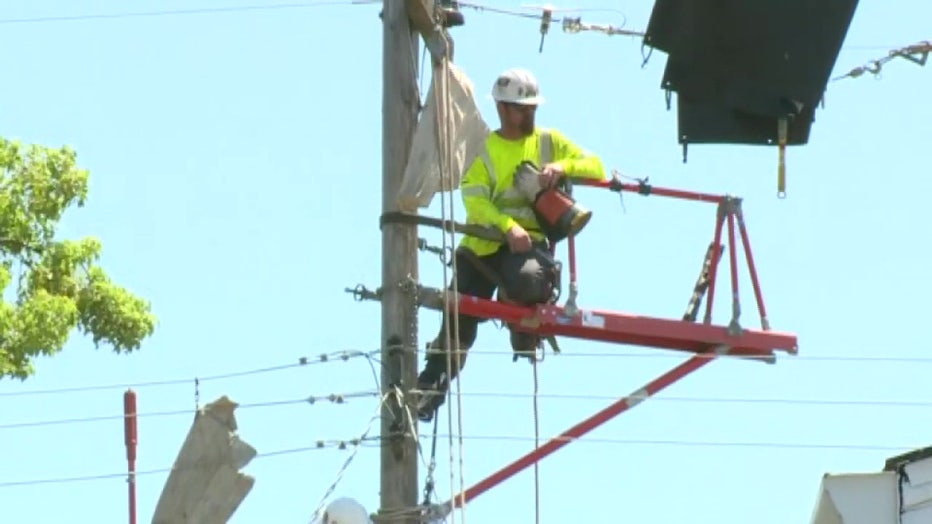Outdoor workers, companies suffer more days lost to extreme heat: study
TAMPA, Fla. - For outdoor workers, some days are just too hot to handle – so much so it can force them to put work on hold.
New research on climate change suggests that downtime could soon add up to billions in lost wages and lost income for businesses.
"It's going to manifest and affect not just the outdoor workers and their health, but also the families that depend on them and their communities and also the people that reap the benefits of the work that they do," climate scient Rachel Licker, who co-authored the study, said.
In a new report released Tuesday by the Union of Concerned Scientists, researchers found that, right now, on average, outdoor workers in Florida lose about 5 days of work per year because of extreme temperatures. The report estimates that by mid-century, the number could be as many as 33 days per year for outdoor workers in Florida.
Licker says it could mean up to $8.4 billion in lost wages, alone.
MORE: Global report shows humans are 'unequivocally' contributing to climate warming
"We're really advocating for aggressive action on climate change, getting off fossil fuels, investigating in renewable energy resources," Licker said.
Advocates also want protections put in place for workers. Right now, the Centers for Disease Control and Prevention (CDC) and Occupational Safety and Health Administration (OSHA) have guidelines that encourage employers to take precautions when the heat index exceeds 90 degrees.
So far, California and Washington state are the only states with enforceable heat-safety standards.

"Because of the day-to-day exposure in the heat, they may not be fully aware of what's happening. The higher and higher temperatures, the less likely you are to be able to adapt," internal medicine specialist Dr. Cheryl Holder said.
In order to best protect outdoor workers from extreme temperatures in the future, Licker says policymakers should take action now.
"It's about affording outdoor workers basic human rights and dignity, so they aren't put in the position of having to choose between your health and a paycheck," Licker said.

